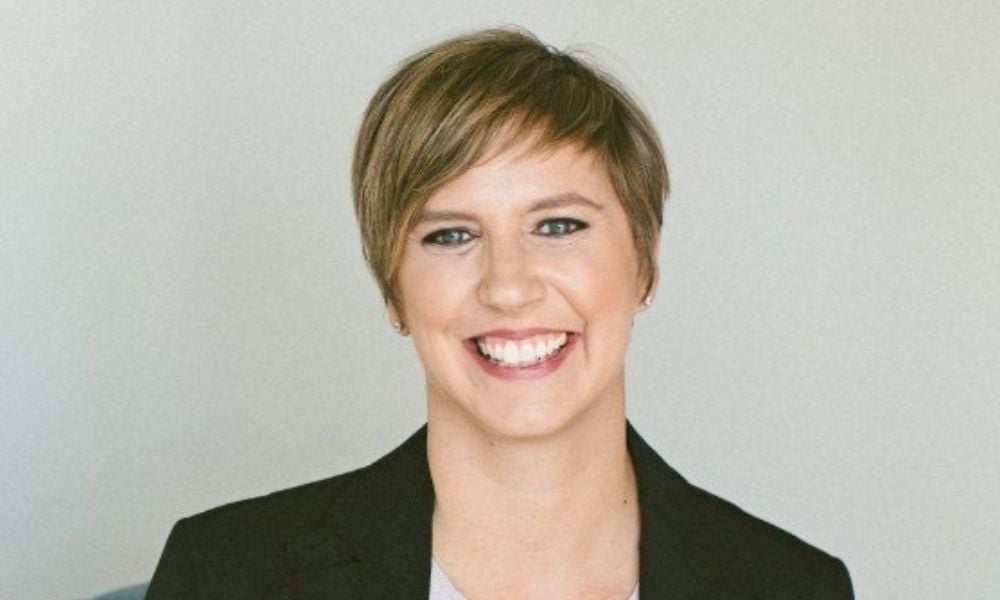
Benevity CPO Janeen Speer on infusing company purpose from day one

Janeen Speer, CPO of Benevity, has spent her 20-year career working with people-driven companies such as Lululemon, Starbucks and Shopify, all organizations that have a common thread of giving back to the communities they serve. What she values about her current position, she said, is bringing those philosophies to other companies; sharing what she’s learned and taking it to the wider world.
“It was during my time at Lululemon, when I was in those worlds of leadership, development and talent management, when I realized how much there was to learn in the space of HR,” Speer told HRD. “I feel like I've continued to learn and grow in in a variety of ways, and I think even today I'm still learning every day, because there's just so many aspects to HR and because the world is always changing, so you're always having to adapt.”
Being a company that works to help organizations define their cultures and to bring the spirit of community service to the workplace, Speer’s team takes this mission literally with dedicated programs such as partnering with a thought leader and in-house volunteering programs.
The culture of giving back begins with day one, said Speer.
“We actually have folks in their first week engage in a virtual volunteer opportunity, as a way to kind of break the ice and spend time together and also get a true experience of our culture and what we mean by the things that we say,” said Speer.
“It's really so important to create that purpose-driven mentality right from the start, helping people understand there's not just one way to have impact and value here. I think for Benevity, that's often what I hear attracts people to us.”
Speer shared that internal research by her team has shown that this strategy of engaging employees in doing volunteering during the first few weeks of their jobs has resulted in 52% lower turnover.
Creating moments for employee engagement
Creating unique and impactful moments that deeply engage and connect employees with each other is a challenge that all HR leaders are facing right now, Speer said, explaining that people don’t “buckle in” to their jobs like they used to. This new reality means HR professionals must always be looking for new ways to keep their employees engaged and interested.
As an example of how her team meets this challenge is by going above and beyond with annual “Homecoming” events in Calgary. Over a week employees take part in all-hands meetings deciding on the company’s future goals, engaging in volunteering in the community, and an awards ceremony.
“We celebrate our people. We have an awards ceremony celebrating some of our people that are the best representatives of our values, and telling stories,” Speer said. “It's all peer-nominated, and it's a really wonderful moment to just really let our people shine.”
Taking the event to the next level of engagement, employees and leaders are invited to perform in a rock concert that closes out the week.
In surveys following the event, Speer said her team receives “extraordinarily positive feedback” from employees: “about that opportunity to connect, to get clear on the path ahead, and then to give back to our community and celebrate each other.”
While the post-pandemic atmosphere has presented obvious challenges for HR in retaining and attracting talent, it has also presented opportunities for HR to learn and grow, Speer said.
Remote and hybrid work models have been positive advancements for women and caregivers, she said, but also challenge HR to find ways to engage with employees where they are. Being flexible is key, she said.
“It's challenging sometimes, figuring out how to crack the code on keeping employees engaged and connected, no matter where and how they choose to work, and to find the best approaches to engage people who are not always together,” she said.
“There used to be a lot of continuity and standardization in how people worked, and today it's more about, how do you learn to be innovative and flexible, and constantly evaluate – is what we're doing working, and do we need to adjust? My perspective is that HR leaders just need to deeply listen to their people and really understand the experience other people, so they come up with the right set of options.”